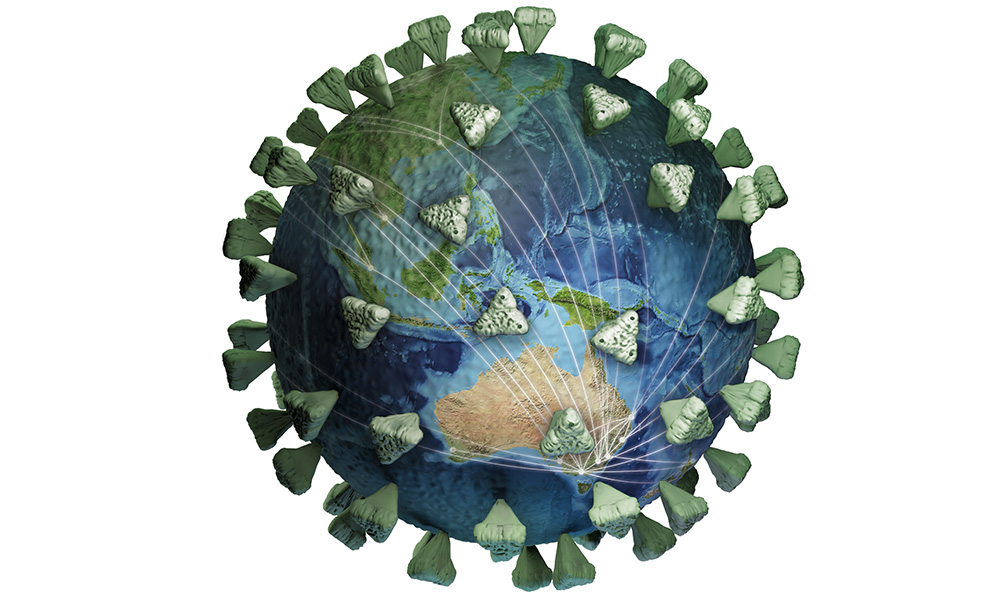
Read the latest Issue
*and why you should attend the upcoming EMBL SARS-CoV-2 conference

It’s been almost two years since the first COVID-19 cases in China, yet the pandemic continues.
On 10 December, EMBL will assemble global experts for a conference on the state of SARS-CoV-2, Two years on: science meets the challenge. Researchers from multiple fields will present the latest developments in SARS-CoV-2 molecular biology and epidemiology, public health strategies, and approaches to protecting the global population against the virus. Here’s just a quick preview of some of the topics covered at the conference.
1. Improving our understanding of zoonotic disease.
“As a majority of emerging infectious diseases are caused by zoonotic viruses, it is essential that the international community work together and use the One Health approach…. Within the science community, we must realise we are all responsible for addressing zoonotic disease – vets, doctors, environmental scientists, policy makers, and the many intersecting scientific disciplines.” – Lin-Fa Wang, Duke-National University of Singapore Medical School, Singapore
2. Developing new medications to treat COVID disease safely and effectively.
“A deep understanding at the molecular level of the pathways at play is fundamentally important to creating new antivirals. It will require a coordinated multidisciplinary effort that combines the best resources and innovation from academia and industry.” – J. Victor Garcia, University of North Carolina School of Medicine, United States
3. Collaborating to improve vaccine development and equitable worldwide distribution.
“The best way to get vaccines to everyone is to increase vaccine manufacturing of licensed vaccines. The supply is increasing each month, so countries awaiting vaccine need to be ready. Likewise, Vaxzevria is important as it requires refrigerated, rather than frozen, storage, making it easier to transport and store.” – Sarah Gilbert, Jenner Institute, United Kingdom
4. Providing important foundational fundamental research.
“Molecular biologists have developed the vaccines against COVID-19 and at an extremely high speed. Without the research on coronaviruses over the past 40 years, we would not have been able to address the pandemic so fast.”– Jürgen Deka, Head of EMBL External Scientific Training
5. Planning now for future, potential pandemics.
“Human behaviour – such as habitat destruction, intensive farming, mass travel – is unfortunately increasing the risk of zoonotic pathogen transmission to the global population. We must use the current pandemic to enhance preparedness for the inevitable next pandemic. Open science needs to be at the core of any new national or international measures we enact to monitor and combat emerging viral threats.” – Stephen Cusack, Head of EMBL Grenoble
6. Building next-generation tools and talent.
“If the pandemic taught us anything, it’s that we should invest now in research and infrastructure and not try to catch up later on. Providing the mechanisms and tools that allow for smart collaboration, and ensuring the next generation of scientists is working in robust, multidisciplinary research settings, is the best way to address future pandemics.” – Edith Heard, EMBL Director General
Piqued your interest? Find out more and register for the conference here.
Looking for past print editions of EMBLetc.? Browse our archive, going back 20 years.
EMBLetc. archive